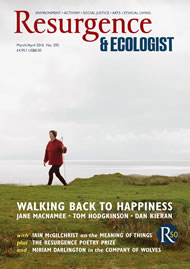This is a compelling account of the capture of the Greenpeace ship Arctic Sunrise by Russian forces in September 2013, and the subsequent incarceration in Russian prisons of its crew, who were all facing a charge of piracy.
Despite the fact that we know they were eventually released, Ben Stewart makes it an adventure story, relating with great skill the emotions of the prisoners. It has all the twists and turns of a thriller. For those involved it certainly did, facing, as they were, 10 to 15 years behind bars.
The book is also different from anything else written about Greenpeace in that it is honest about tensions and divisions in the crew. These were mainly about who was responsible for the mess they got themselves into, and the possible dire consequences of taking on Putin’s Russia. Some clearly had not realised they could face years in jail.
For an organisation that has always been very sensitive about its image this shows a new maturity, because the author was one of the core team responsible for the campaign to free the Arctic 30. In the past he would have been ostracised for such revelations. (I say that with the authority of someone who has been declared persona non grata having sailed with and then written much about Greenpeace in the past.)
The best bits of the book are undoubtedly the descriptions of life inside Russian prisons. These are both entertaining and illuminating, and illustrate wonderfully the resourcefulness and resilience of human beings. The Greenpeace detainees were extremely fortunate in that the other prisoners were immediately on their side and looked after them as fellow victims of the system and treated them as honoured guests.
It also came to light later that however difficult being in a Russian prison was for the detainees, there were orders from both the “boss” prisoners and Moscow that they were to come to no harm and that any physical coercion was out. Not that this was much comfort to people facing 15 years on a charge on which there was no chance of being found not guilty. The life stories of key people that Stewart chooses to focus on explain their dedication and motivation.
It is clear as the story unfolds that the whole saga of the illegal capture of the ship and those on it in international waters by armed Russian special forces units was entirely on the orders of one man: the Russian president. Knowing their fate was entirely in his hands meant that the Greenpeace campaign team had to devise a strategy that did not back him into a corner but allowed him to be magnanimous and release their crew.
For an organisation that regularly takes on governments and large corporations and usually walks away after a few days without much more than a rap on the knuckles, this confrontation was of a different order. Putin wanted to make it clear that he was not a man to mess with, and as a propaganda expert he certainly used every dirty trick he could think of. Greenpeace battled back with all the demonstrations, legal devices and propaganda in their armoury, but aimed them at the Russian energy giant Gazprom and not Putin – a clever strategy.
In the end it was the looming Winter Olympics at Sochi that tipped the balance in favour of the Arctic Sunrise crew. The prospect of demonstrations ruining the event meant that both the Greenpeace 30 and Pussy Riot were granted presidential pardons. It was a close-run thing.






